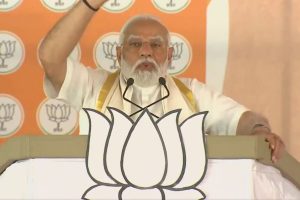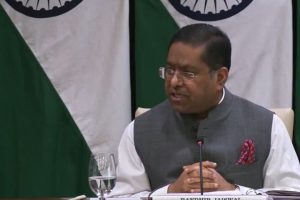The chairman of the Darjeeling Tea Association (DTA), Sanjay Bansal, has appealed to West Bengal Chief Secretary Rajiva Sinha to regulate the sale of Nepal tea so as to save the Darjeeling Tea Industry.
Significantly, Rajya Sabha member from the Hills, Shanta Chhetri, who attended a video conference meeting organised by the Tea Board of India, pointed to the Nepal tea issue and urged strong action against it, demanding immediate disbursement of all pending subsidy to 87 gardens in the Hills on account of the 104-day disruption of work in 2017, and to all gardens in North Bengal.
Obversely, Darjeeling MP Raju Bista, who also attended the conference, said: “The tea industry in North Bengal is in a very precarious position, and for the past 8-9 years, the subsidies that are due to be paid to our tea gardens in North Bengal have not been released. This has impacted the timely replacement of bushes, transformation to organic tea and improvement of the overall tea industry’s health. I request these long-pending dues to be paid at the earliest, to ease the financial burden on our tea industry.”
“I was happy to note from the Deputy Chairman that some amount has been released already, but the need of the hour is to process all pending payments and dues.” Mr Bansal has said that the yield of tea in Nepal has been going on in full force since the beginning of February 2020 and continued even during the lockdown in the neighbouring country.
“These teas are ready and are in the process of being shipped to India through the Indo-Nepal land borders in West Bengal to be sold in the local markets by taking advantage of the absence of Darjeeling Tea in the market due to the lockdown restrictions,” Mr Bansal informed Mr Sinha, adding, “The Nepal Tea Industry is primarily an unorganized sector and, therefore, the production takes place without any formal food safety regulation compliance. While the import of 100 percent Nepal tea is subject to FSSAI compliance. The majority of the tea imported from Nepal has failed the FSSAI regulations. The evidence in this regard is available with the Tea Board of India.”
FOCIN for small shops to open
Meanwhile, the Federation of Chambers of Commerce & Industry, North Bengal (FOCIN), has requested Chief Minister Mamata Banerjee to allow small wholesale and retail shop owners to open their establishments. In a letter to the CM, FOCIN secretary Biswajit Das has said that most small wholesale and retail shops and markets are situated on either sides of several roads in North Bengal, but they are not stand-alone or in complexes.











